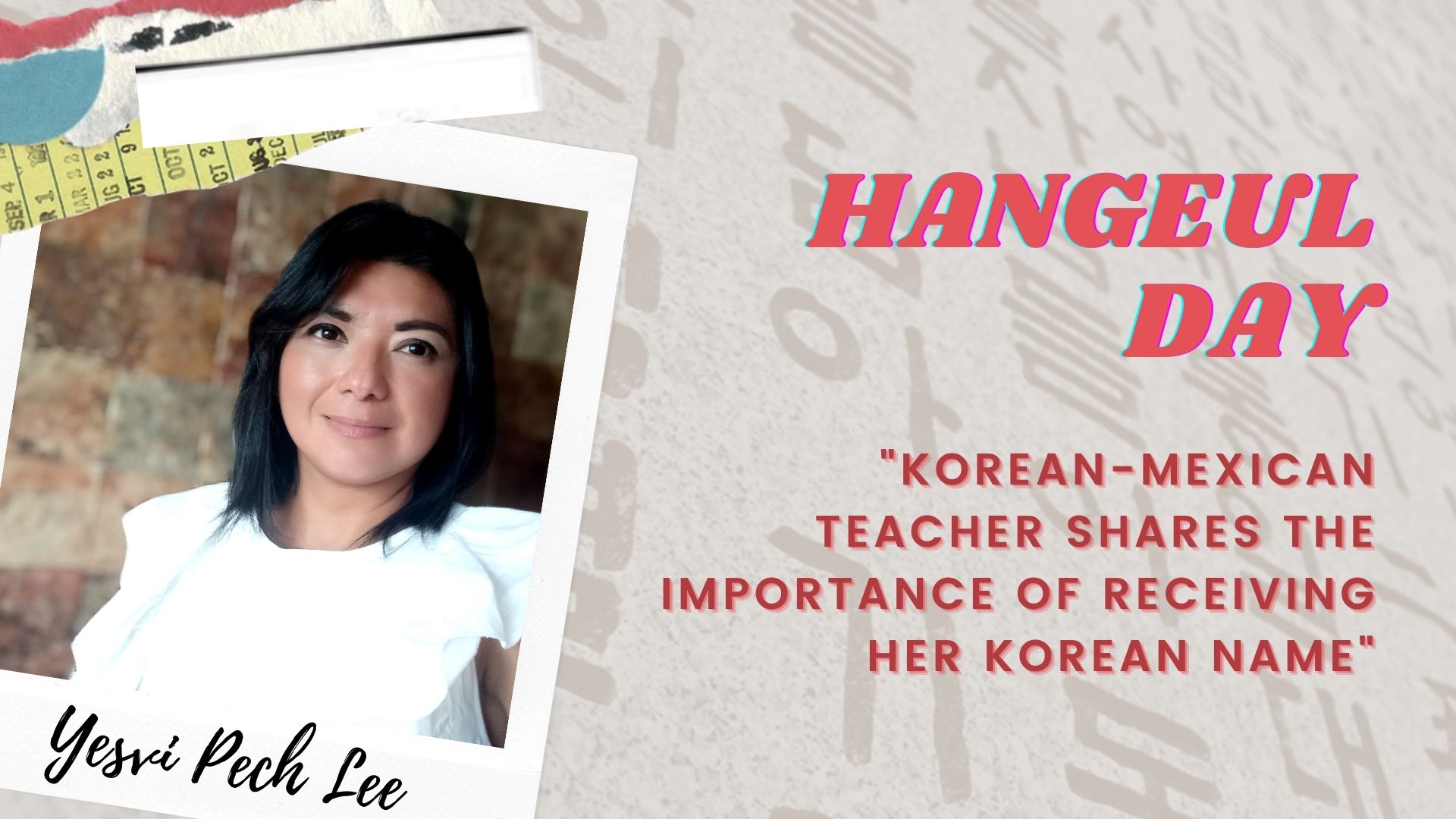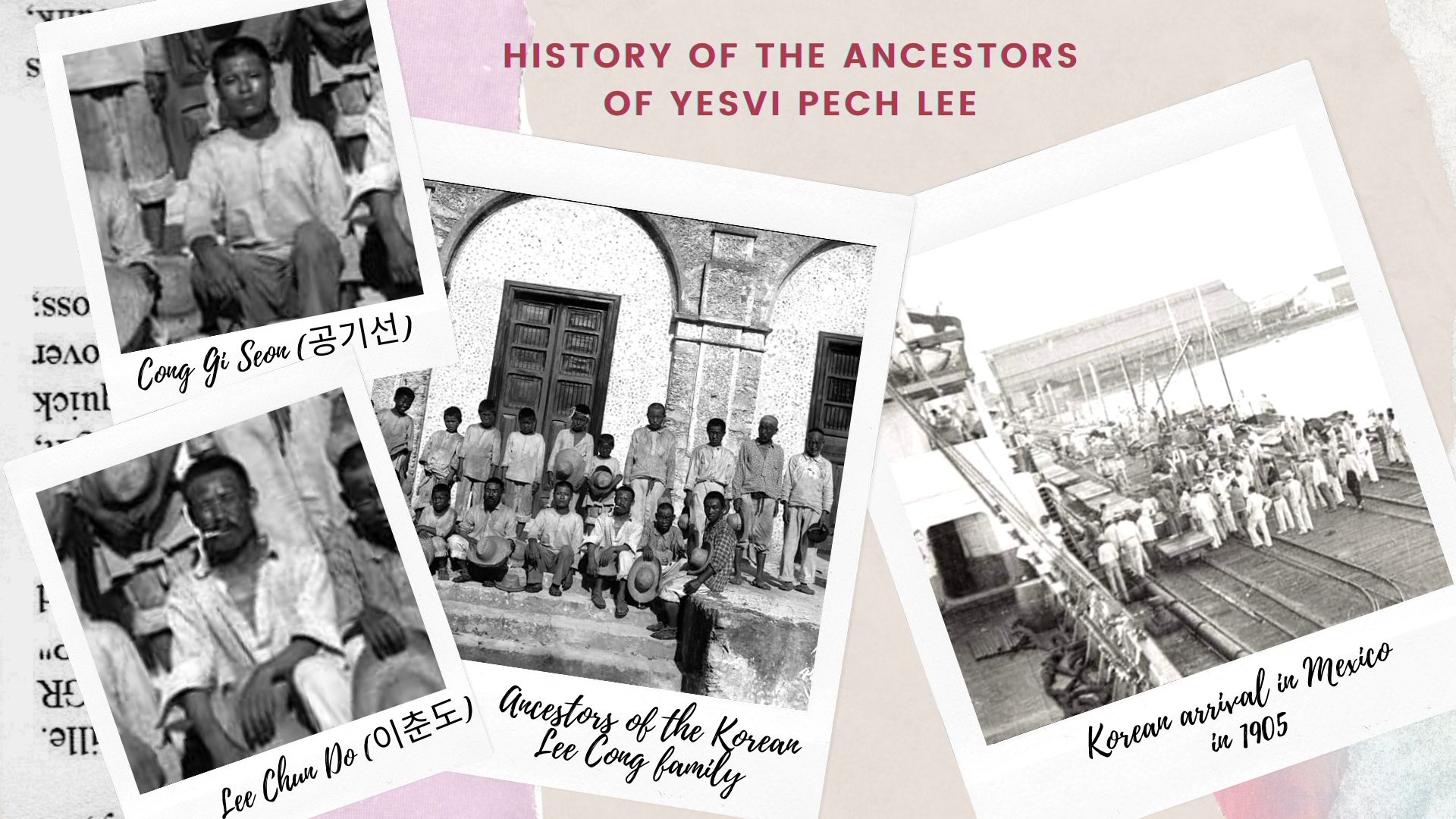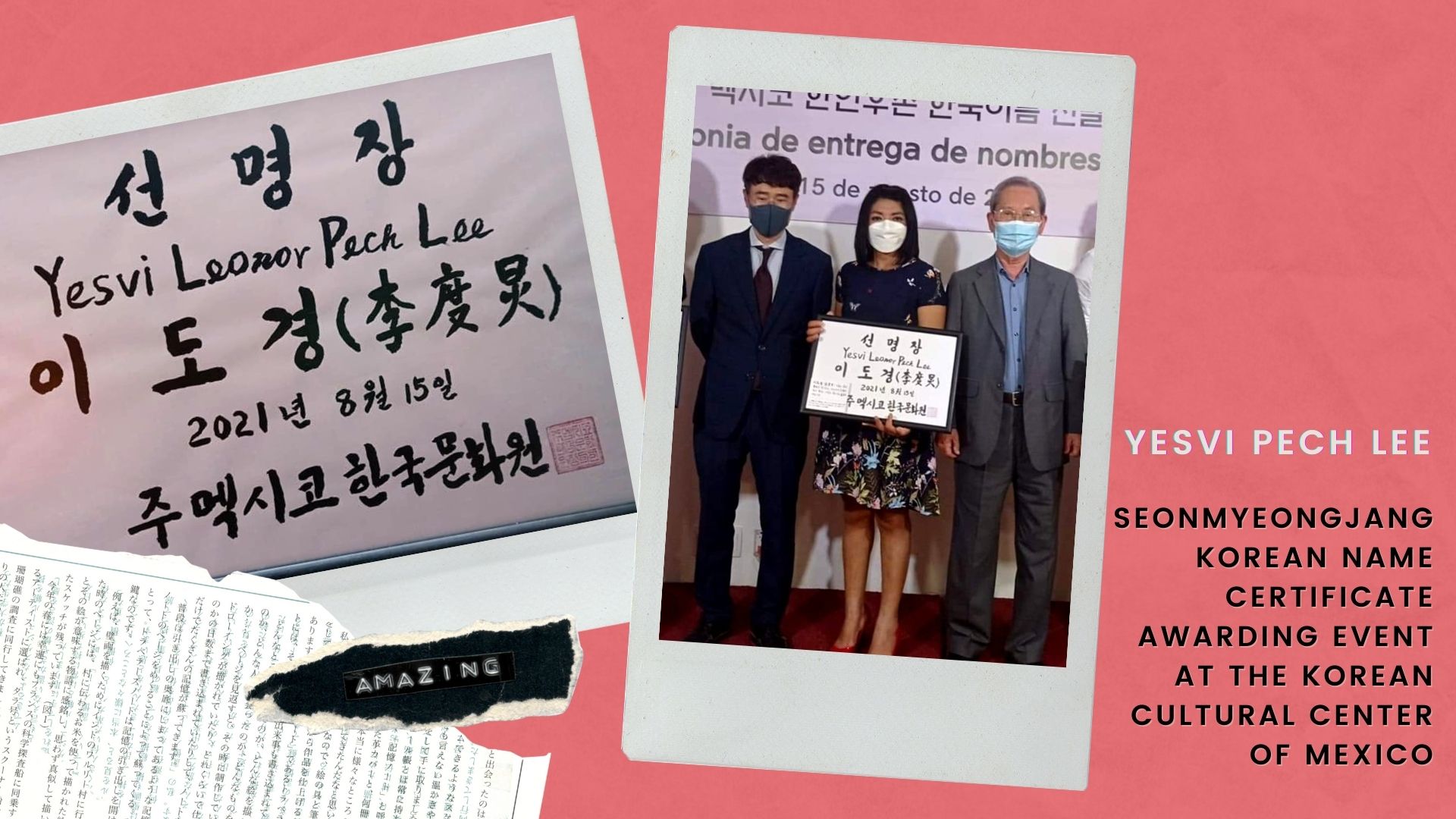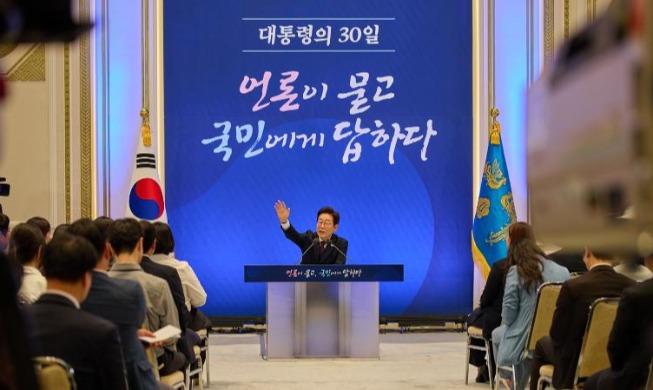- 한국어
- English
- 日本語
- 中文
- العربية
- Español
- Français
- Deutsch
- Pусский
- Tiếng Việt
- Indonesian
By Honorary Reporter Dayviana Diaz from Cuba
Photo = Descendientes coreanos 14/05/1905

Hangeul Day falls on Oct. 9 every year to mark the date in 1446 when King Sejong the Great promulgated the Korean alphabet. This year marked the 575th anniversary of the historic occasion.
On Aug. 15, the Korean Embassy and the Korean Cultural Center in Mexico held an awards ceremony for certifying the Korean names of ethnic Koreans in Mexico City and Campeche and the state of Yucatan. They knew the origins and surnames of their ancestors made through jakmyeong, the traditional Korean practice of naming a baby.
To understand this practice better, Yesvi Pech Lee, a descendant of the first Korean immigrants in Mexico, described the experience of receiving a Korean name this year.
Please tell us about yourself.
I am a fourth-generation descendant of Korean immigrants in Mexico. My great-grandparents came to Mexico from Incheon as part of the first wave of Korean immigrants in 1905. I live in Merida, Yucatan, and work as a teacher for the state government. I am also a mother of two children.
My grandmother always instilled in us the Korean customs she inherited from her father and father-in-law. Our large family comprises more than 100 people on the maternal side. After arriving in Mexico, my great-grandparents adopted a Mexican name, and 68 years later, we learned their Korean names. This is highly unusual because very few descendants know the Korean names of their ancestors.
Because of my passion for knowing the circumstances in which our families arrived and lived, I toured the haciendas and towns of my state to visit the children of Korean immigrants who arrived on the Yucatan Peninsula in 1905. I eventually decided to share and preserve the life stories I'd heard from the Korean community and descendants of immigrants in Yucatan on the Facebook page "Descendientes coreanos 14/05/1905."

Ancestors of the writer's family arrived in Mexico in 1905 and settled in the henequen haciendas of the state of Yucatan.
How did you get selected for this KCC event?
I entered a KCC contest that required documentation of one's great-grandparents.
How has the history of your ancestors been preserved?
My ancestors, as well as all Korean immigrants who came to Yucatan, had a hard and sad life since they failed to achieve their dreams and had to adapt to Yucatecan life. By marrying Yucatan natives, their children nearly lost their Korean culture and heritage, with very few given Korean names and most not being taught Korean. Because of this, the jakmyeong opportunity was a new and unknown topic for the descendants of Korean immigrants in Mexico.
Families like mine, however, have kept their roots alive and transmitted the essence of where they came from over generations through the preservation of the original family names and Korean customs.
Describe the process of creating your name and its meaning?
Our jakmyeong was a meticulous and detailed process, as characteristics were based on the name of my ancestors. “When a person dies, he leaves his name; in a person's life is his name. We must have a good name because that is how we'll be called for the rest of our lives." Following this philosophy, creating a name requires great effort, and two to three days is needed to arrive at the perfect name.
A jakmyeong expert in Korea worked with the requested data for five months and came up with 39 names for the descendants, including mine. Each Korean name has three syllables. My surname Lee means "plum tree," and signifies the hope of becoming a high-level public official who listens to and handles the grievances of the people and protects their way of life by setting an example.
The first letter of my given name is Do, meaning "order." It signifies respecting law and order in life and serving as an example for everyone. The second letter is Gyeong, meaning "a bright light unconstrained by crisis and living life to the fullest." Thus my Korean name is Lee Do-gyeong.

The Korean Cultural Center in Mexico City held an event to bestow certificates of Korean names to ethnic Koreans in Mexico.
Why should each descendant have their Korean name chosen wisely?
This way, the new generation can carry their names as part of their Korean heritage to distinguish them for life, considering that a name was chosen based on the best characteristics of the person.
Jakmyeong is the first gift a Korean receives at birth. What does it mean to receive it as an adult and how do you plan to use it?
I never thought that I'd get this name; I couldn't believe that it had such a deep and beautiful meaning. But I'm totally satisfied since it's in line with my personality shaped by my education and family teachings. I was excited when I read it as it means a lot to me at this stage of my life. I will wear it with pride to reaffirm my Korean identity and culture and the pride and honor of the Korean diaspora in Mexico.
enny0611@korea.kr
*This article is written by a Korea.net Honorary Reporter. Our group of Honorary Reporters are from all around the world, and they share with Korea.net their love and passion for all things Korean.
